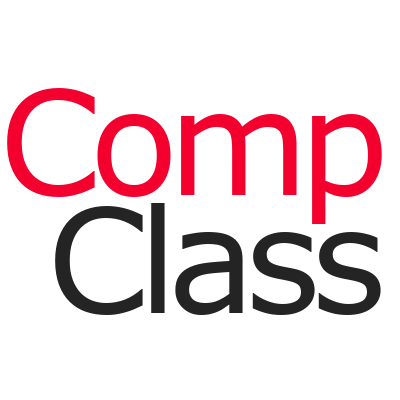
Welcome to the CompClass website! This was prepared about a year after the class was finished, in order to make it easier to navigate and view the course materials. There have been some significant updates since the class was taught; Python 3.7 is much more common and 3.8 is starting to take hold (and is used by default for the rendering, though 3.7 is the maximum syntax used in the examples and most code is 3.6 compatible). Python 2 is now officially at End-of-Life.
This book was created with JupyterBook, and is based on the original Jupyter notebooks.
Usage: online
On any page, you can click the "Interact" button. This may take a minute or two to start, but will drop you into a JupyterLab session with the current page open. From here, you can explore and all the notebooks.
If you really don't want to leave the page, try the "Thebelab" button. That will make all cells in the current page editable and runnable without leaving the page.
Usage: installing
If you want to run this locally, download
miniconda
for your OS. If you are on macOS and you use brew, then brew cask install
miniconda will do.
Download the github repository with
your favorite download method, such as git clone
https://github.com/henryiii/compclass (or, if you use SSH, then
git@github.com:henryiii/compclass).
In the compclass directory, run:
conda env create
This will create the "compclass" environment from the file environment.yml. Then you can run:
conda activate compclass
To use the environment. It will have everything you need!
Using: What about the unrun notebooks?
There are a small number of notebooks that are not run by the Continuous Integration (CI) that builds this site. The reasons are listed below:
week9/2_mcmc: Uses MCM3, which uses Theano, which is a discontinued ML tool. MCM3 is supposed to maintain it while using it, but I found it buggy on some systems.week12/0_cupy_fractal: Requires CuPy and a GPUweek12/1_PyBindNumba: Requires IPyBind, which I didn't install (and building C++ on multiple systems is a bit tricky)week12/1_Fitting: Uses several ML frameworks not ready for Python 3.8week12/1_guis: Really not applicable to a notebook environmentweek14/1_graphs: Uses several ML frameworks not ready for Python 3.8week14/2_ml: Uses several ML frameworks not ready for Python 3.8
Also, note that several notebooks use interactive features of MPL (like notebook/widget backends), and at least one uses Bokeh, which do not render properly in a static webpage environment - view them in an interactive backend for best effect.
